What is Hypertension ?/ How to Treat Hypertension ?/What are the Symptoms and Causes?
Hypertension may be a term wont to describe high vital sign
. What vital sign is, is a measurement of the force of the blood because it pumps
through your arteries.
A traditional blood pressure is 120 over 80. the 2 numbers during a vital sign ,
the highest number shouldn’t be greater than 120, and therefore the lower number shouldn’t
be greater than 80.
The highest number is named your blood pressure which may be a measurement of the force
within the arteries as your heart pumps blood. rock bottom number is named diastolic vital sign
which is that the measurement of force in the arteries when your heart is at rest.
Anywhere from 120 over 80 to 140 over 90 would be considered
pre-hypertension. Pre-hypertension often results in high vital sign , hypertension.
Anything greater than 140 over 90 is considered high vital sign or hypertension.
- The people at greatest risk for hypertension are
African-Americans. - Also if you’ve got a family history of hypertension, and that is why it is vital to
understand your case history. - People that are obese also are at great risk for developing hypertension.
- Long-term stress increases the risk for hypertension.
- Smoking cigarettes, shooting up ,
both street and over-the-counter medication are risks for developing high vital sign. - Diabetes also puts you in danger for high vital sign.
The symptoms of a high blood pressure
- It might be something just a simple as headache, also confusion.
- Any visual disturbances.
- Sometimes nausea and vomiting could even be a symbol of high vital sign.
- Nose bleeds.
However, it is vital to notice that hypertension is named the silent killer because you’ll be
walking around with a really , very high blood pressure and have absolutely no symptoms in the least
. That’s why it’s knowing have your blood pressure checked frequently because although you’ll be
feeling perfectly fine, you’ll have high vital sign .
While there are many causes of hypertension
A number of the
best causes would be
- Conditions of the kidney
- Conditions of the blood vessels
- The
systema nervosum - Increased cholesterol also contributes to hypertension .
- In fact age As we age our blood vessels become stiff and that increases our blood pressure.
- The water and salt ratio in
our body contributes to high blood pressure. - Also certain hormone levels would also
contribute to high vital sign .
There are various treatment regimens
that might be recommended or prescribed and firstly and really importantly,
- Lifestyle changes might be suggested, and these will nearly always be used along side some kind of medication.
- But one suggestion is to use something called DASH, which stands for Dietary Approaches to Stop Hypertension. As the name quite suggests, this is often a diet-based lifestyle change, where we actually emphasize eating foods with less sodium also as eating whole grains, fruits, vegetables, and low fat dairy products.
Another lifestyle change, a huge, huge, huge one,
- Is to quit smoking and a touch on an equivalent lines,
- Alcohol consumption should really be done only carefully .
- Also, exercising half-hour most days of the week
- And losing weight if already obese is usually suggested as a crucial lifestyle change.
Medications also will likely be prescribed alongside these lifestyle changes. And there are both
First line and second line medications
For treating hypertension.The first line medications are often recommended as a first, or initial sort of therapy because studies have shown that they’re the foremost
effective in preventing complications from hypertension, and they’re generally safe, and in most cases, pretty inexpensive. So since your vital sign is said to the flow, or the fluid volume in your body, right, and the resistance within the vessels, these medications will target one among these two factors. And the first are thiazide diuretics.
Now these guys increase the excretion of sodium and water by the kidneys, therefore they reduce your fluid volume and so, your vital sign . You could even be prescribed calcium channel blockers, and these block the channels in your vascular smooth muscles that let calcium ions undergo . So, in effect, they reduce the contractions of your blood vessels, and relax them. And this essentially makes them larger and reduces their resistance, which reduces the vital sign , right!
There’s also ACE inhibitors, and these prevent the renin-angiotensin-aldosterone system from taking effect. So basically these inhibitors block the formation of angiotensin II , which may be a vasoconstrictor. Since vasoconstrictors constrict your blood vessels, this will find yourself widening the blood vessels and basically reduce the resistance, so it’ll also reduce the vital sign .
Not only that though, it’ll prevent the formation of aldosterone, which reduces sodium and water retention and reduces blood volume, and so vital sign goes down also . And finally there’s angiotensin II receptor blockers. And basically these give an equivalent result as the ACE inhibitors but rather than blocking the formation of angiotensin II , they block the receptors that answer angiotensin II . But if the primary line choices for medications aren’t effective,
Then the physician might prefer to attend the second line choices for treating hypertension. And some of these are as follows.
So first you’ll have the aldosterone receptor blockers which do just about exactly what their name suggests. They block the aldosterone receptors, and since aldosterone causes sodium and water retention, blocking these receptors will reduce your sodium and water retention and thus reduce your blood volume, and so your vital sign .
Now renin inhibitors inhibit this enzyme called renin, which converts angiotensinogen to angiotensin I . And this prevents the eventual formation of angiotensin II and aldosterone, which a bit like the ACE inhibitors reduces your resistance and your blood volume.
Another one could be alpha-adrenergic blockers. And these guys block the receptors that sit on your vascular smooth muscles. When these receptors are blocked, we inhibit the vasoconstriction and thus cause the vessels to widen, which reduces your resistance.
Finally you’ve your central adrenergic inhibitors. And these work to stop your brain from sending sympathetic systema nervosum signals that would normally cause your heart to beat faster and your blood vessels to constrict. So once we inhibit this response, your blood vessels widen, your resistance goes down, and the vital sign goes down also .
I hope you you are understand about what is hypertension and how to treat it, also understand the symptoms and causes.


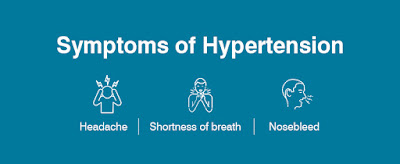
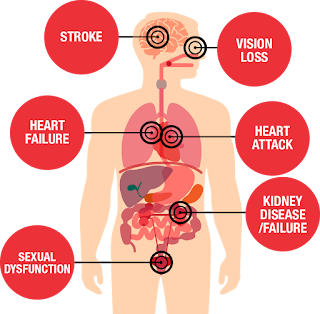
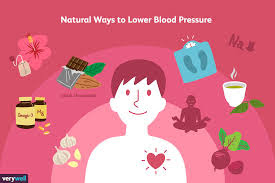
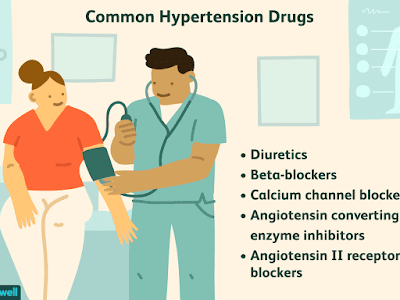
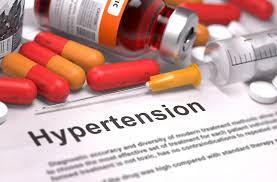
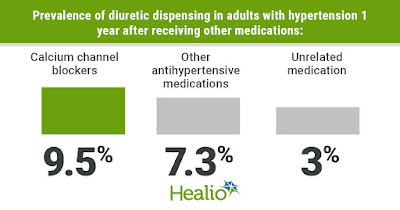
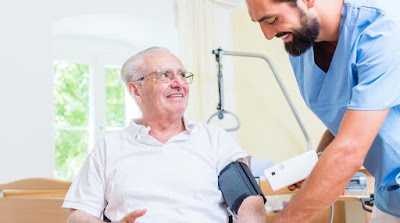
Leave a Reply